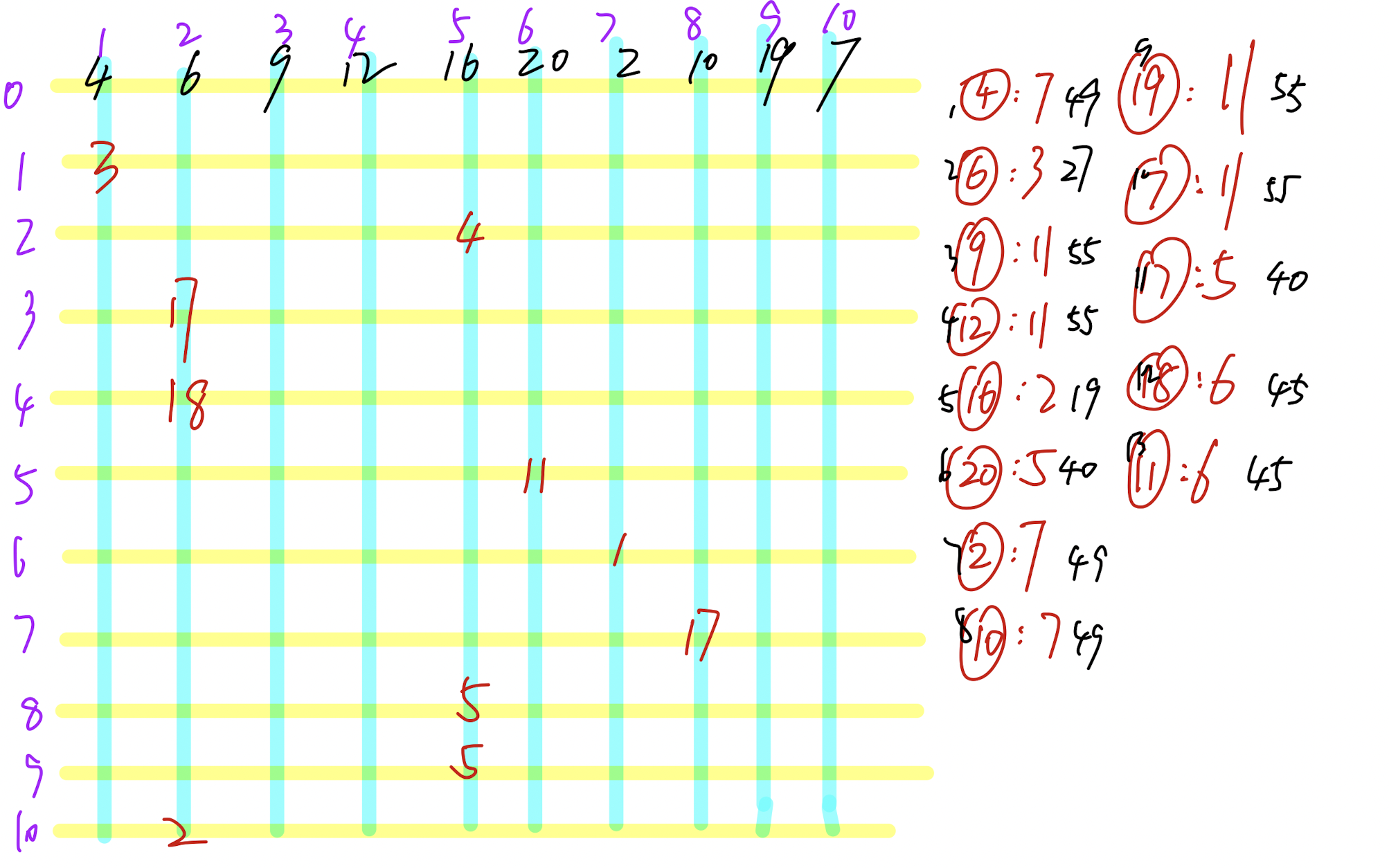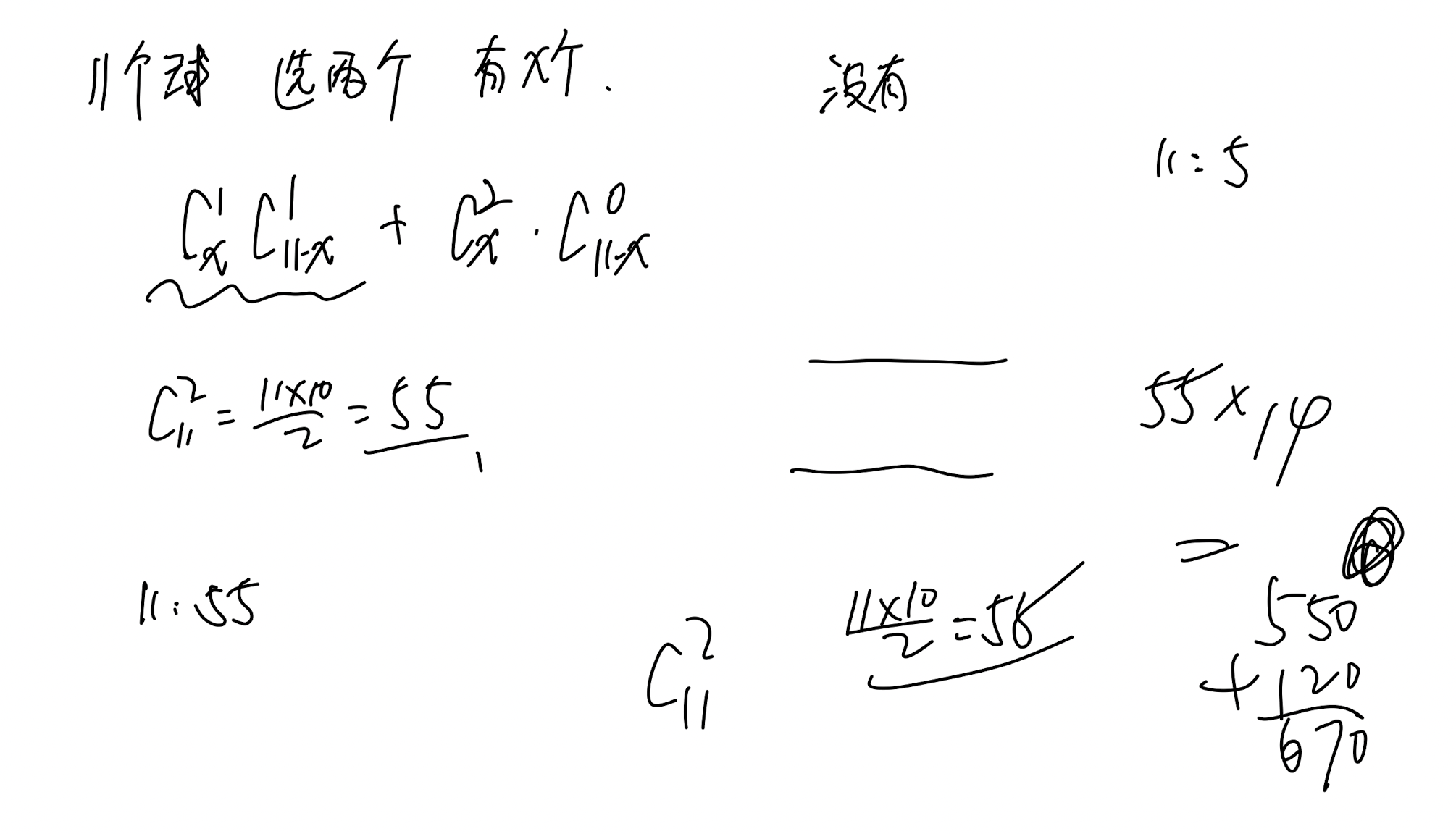此篇属于比赛题解集合(CF && AcWing Race)链接
欢迎留言讨论
cf round 853 C


CODE
#include<iostream>
#include<cstring>
typedef long long ll;
using namespace std;
const int N = 4e5 + 10;
int main()
{
int t;cin >> t;
while(t --)
{
ll start[N];
//int end[N];
ll leng[N];//leng[a[]]
ll a[N];//all number id ->a
ll now_a[N];// pos -> a
bool appear[N];
memset(leng,0,sizeof leng);
memset(appear,false,sizeof appear);
int n,m;
cin >> n >> m;
for(int i = 1;i <= n;i ++)
{
cin >> a[i];
now_a[i] = a[i];
start[a[i]] = 0;
appear[a[i]] = true;
}
// cout << start[a[1]] << "**" <<endl;
int cnt = n;
for(int i = 1;i <= m;i ++)
{
int num;int pos;
cin >> pos >> num;
// cout << leng[now_a[pos]]<<"&&&" << endl;
leng[now_a[pos]] += (i - start[now_a[pos]]);
//cout << start[now_a[pos]] << "**" <<endl;
//cout << leng[a[pos]] <<"pos" <<endl;
now_a[pos] = num;
start[num] = i;
if(!appear[num])
{
// cout << "num" <<num <<"cnt" << cnt<< endl;
appear[num] = true;
cnt ++;
a[cnt] = num;
}
}
// cout << m << "m" << endl;
// cout << leng[now_a[1]] <<"now" <<endl;
for(int i = 1;i <= n;i ++)
leng[now_a[i]] += m - start[now_a[i]] + 1;
ll res = 0;
for(int i = 1;i <= cnt;i ++)//cnt有问题
{
ll x = leng[a[i]];
//cout << a[i] << "-----" << x << endl;
// int t = m + 1 - x;
res += (x *(m + 1 - x) * 1LL + (x - 1) * x /2 * 1LL);
}
cout << res << endl;
//cout << endl;
//cout << endl;
}
return 0;
}
DP
DP solution for problem C.
Let 𝑐𝑛𝑡(𝑖,𝑘) be the number of times the number 𝑘 appears in the arrays 𝐴0,𝐴1,…,𝐴𝑖 and let 𝑑𝑝[𝑖] the sum of the values of the concatenations (𝐴𝑖,𝐴𝑗),0≤𝑗<𝑖.
When we go from the iteration (𝑖−1)-th to the 𝑖-th only changes the number 𝑎𝑝 to 𝑣, so, in the transition 𝑑𝑝[𝑖−1]→𝑑𝑝[𝑖] we only have to analyze how 𝑎𝑝 and 𝑣 affect the result.
Assume that the change is not yet made in 𝐴𝑖 (𝐴𝑖=𝐴𝑖−1), then 𝑑𝑝[𝑖]=𝑑𝑝[𝑖−1]+𝑛 (because (𝐴𝑖,𝐴𝑖−1) are equal, so just add 𝑛 to 𝑑𝑝[𝑖]). The change is made and for each 𝑎𝑝 in 𝐴0,𝐴1,…,𝐴𝑖−1 we add +1 to 𝑑𝑝[𝑖] (because 𝑎𝑝 doesn’t exist in 𝐴𝑖), and for each 𝑣 in 𝐴0,𝐴1,…,𝐴𝑖−1 we substract −1 from 𝑑𝑝[𝑖].
So, the transition is:
𝑑𝑝[0]=0, 𝑑𝑝[𝑖]=𝑑𝑝[𝑖−1]+𝑛+𝑐𝑛𝑡(𝑖−1,𝑎𝑝)−𝑐𝑛𝑡(𝑖−1,𝑣), 1≤𝑖≤𝑚
And the answer is:
𝑎𝑛𝑠=∑𝑚𝑖=1𝑑𝑝[𝑖]

